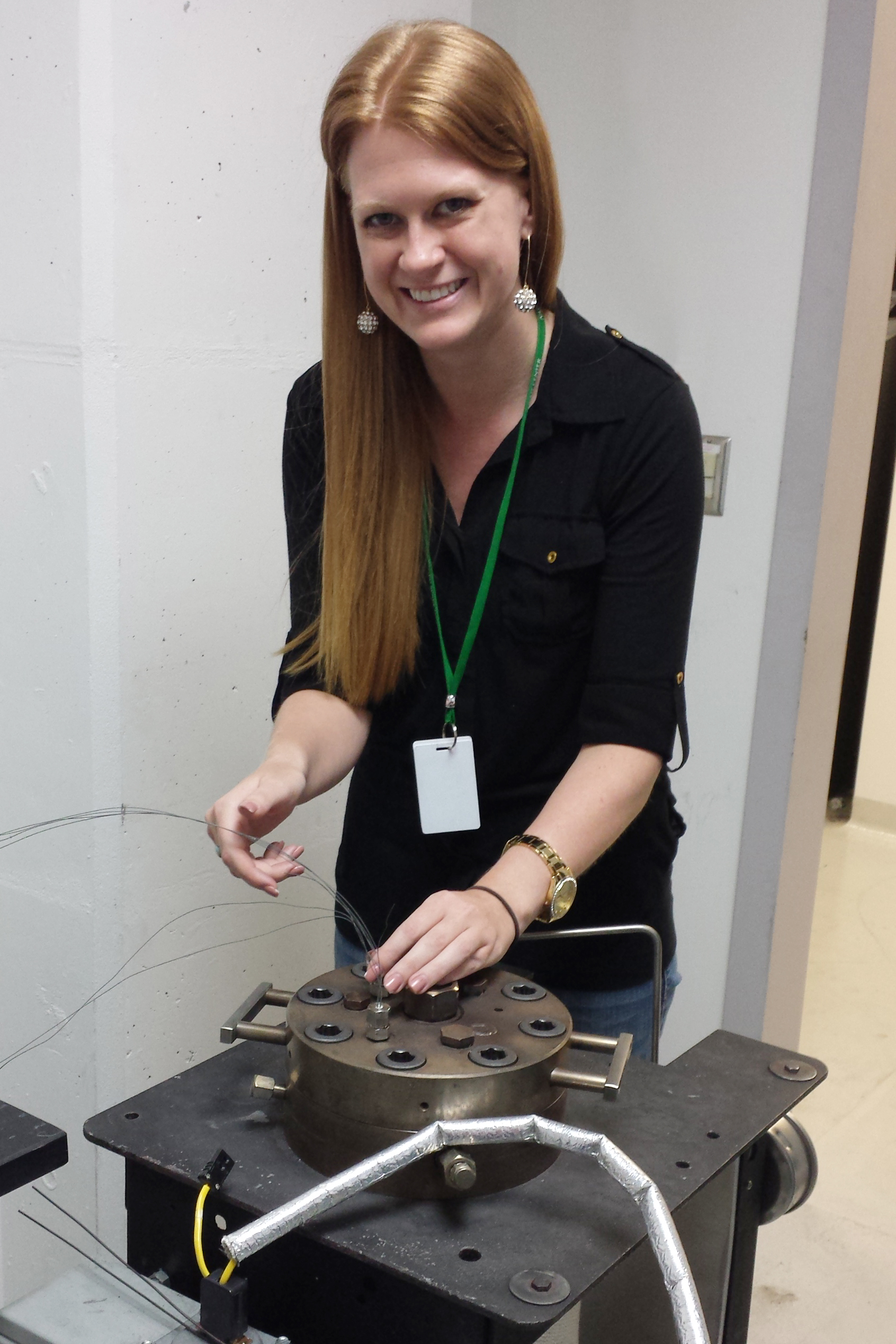
FAYETTEVILLE, Ark. – Is it snowing metal on Venus?
Erika Kohler is trying to find out.
Kohler, a doctoral candidate in the Arkansas Center for Space and Planetary Sciences at the University of Arkansas, returned to campus last month after a summer-long fellowship at NASA’s Goddard Space Flight Center in Maryland, where she performed experiments in the facility’s pressure chamber to simulate Venusian conditions.
“My dissertation is focusing on metal condensates in planetary atmospheres,” said Kohler, who is the only student in the Space and Planetary Sciences Center currently researching Venus. “I have been primarily looking at the stability of materials on Venus and determining what can exist at certain altitudes. I’m finding that there are different forms of iron compounds or mercury compounds that can exist at these conditions.”
Venus, the second planet from the sun, is both the closest planet to Earth and the planet closest in size to Earth. But the conditions on the planet are radically different than ours. The average daily temperature is 860 degrees Fahrenheit, for instance. And the atmosphere is so dense that there are only a handful of actual photographs of the Venusian surface; most images of Venus are created through radar imaging.
 |
| Ultraviolet image of Venus' clouds as seen by the Pioneer Venus Orbiter (Feb. 26, 1979) |
“If you look through a telescope at Mars, you are seeing the Martian surface,” Kohler said. “If you are looking at Venus you are only seeing clouds, not the surface. Through radar imaging, scientists have determined that there are areas on the Venusian surface that appear to have a higher reflectivity than surrounding areas. They wind up being on the slopes of mountains and volcanoes, so I’m investigating whether some sort of metallic snow is causing this reflectivity. I am looking at compounds of mercury, tellurium and pyrite.
“In terms of planetary science, I am trying to answer a question that has been plaguing Venusian scientists for the past 50-odd years,” she said, adding that new information about the planet is being provided by Venus Express, a project of the European Space Agency.
The space agency launched an orbiter in 2005 and since arriving at Venus in 2006 it has been continuously sending back science data from its polar orbit around Venus. Equipped with seven scientific instruments, the main objective of the mission is the long-term observation of the Venusian atmosphere.
Back on Earth, Kohler’s research on the stability of compounds under extreme conditions will also provide information that can be used by physicists, engineers and nanotechnologists, she said.
Kohler, who was awarded a NASA Harriett G. Jenkins Graduate Fellowship last year, is one of two students from Arkansas who have been designated as NASA Student Ambassadors. She began studying Venus when she came to the U of A in the fall of 2010. She is a graduate of the University of Oklahoma with a bachelor’s degree in meteorology and minors in astronomy and mathematics.
She has presented her research at a half-dozen international conferences, including in 2012, 2013 and 2014 at the annual Lunar and Planetary Sciences Conference, held at The Woodlands, Texas; and in 2013 at the International Venus Workshop in Catania, Sicily.
Kohler was awarded a NASA Fellowship last year, which led to her work at Goddard. Her faculty mentors are Claud Lacy, a professor in the Department of Physics, and Vincent Chevrier, a research assistant professor in the Arkansas Space and Planetary Sciences.
The Arkansas Center for Space and Planetary Sciences, founded in 2000, is an interdisciplinary research institute at the University of Arkansas with 18 graduate students and nearly $3 million in awarded grants.
Topics
Contacts
Erika Kohler, doctoral candidate
Arkansas Center for Space and Planetary Sciences
479-575-7625, enkohler@uark.edu